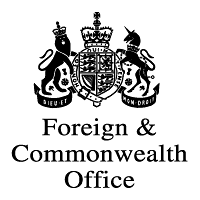One of the most frequent questions we are asked is “Can you provide an official translation?” Private clients, solicitors and other business people alike often need translations for court or other official purposes. We offer a number of different services and we thought a brief summary of the types of official or legal translations might help you understand how we can help you.
Which service do you need?
We provide certified, notarised or legalised translations to suit your exact requirements. These services are available for most world languages, including many rare languages.
We recommend that you always check with the relevant authorities which type of translation they require before you start the process. The level of legalisation needed varied depending on the type of document and the purpose for which it is being translated.
We appreciate that the information contained in your documents can be highly sensitive or personal and we treat all correspondence, whether electronic or physical, with strict confidentiality.
Certified translation
Non-governmental institutions, such as universities, insurance companies or employers, usually require this simple form of certification.
Your translated documents are stamped with our head office stamp and signed and dated by a representative of Aplingo. This attests to the fact that the translation has been carried out by a qualified translator and that we believe it to be a ‘true and accurate’ piece of work.
Notarised translation
Governmental and legal organisations often ask for this more formal type of certification of your commercial or personal documents. For a notarised translation, a representative from ApLingo attends the office of a Notary Public and swears under oath and in writing that the translation is ‘true and accurate’. The Notary Public then signs and stamps the translation to confirm its authenticity.
Legalise d translation
d translation
If you translate your UK documents to use them abroad (e.g. overseas marriage certificates, adoption, visas or job applications), the translations might need a greater level of certification and you will be asked to get them legalised by the Foreign and Commonwealth Office.
A Notary Public confirms again the authenticity of the translation and then sends it to the Foreign and Commonwealth Office, where a final document called the Apostille is signed. In doing so, the Foreign and Commonwealth Office attest that the Notary Public had the authority to sign the notarisation. This final document proves that all the legal steps have been completed and that the document is authentic.
We hope that this short guide has been helpful but if there is anything we can do to help further, or if you have any questions, please don’t hesitate to give us a call or send an email. Our fees are calculated based on the level of certification required and the size and number of documents. We would be happy to hear from you on 0800 389 6571 or by email (translation@aplin.co.uk) if you would like to receive a no-obligation quote.


